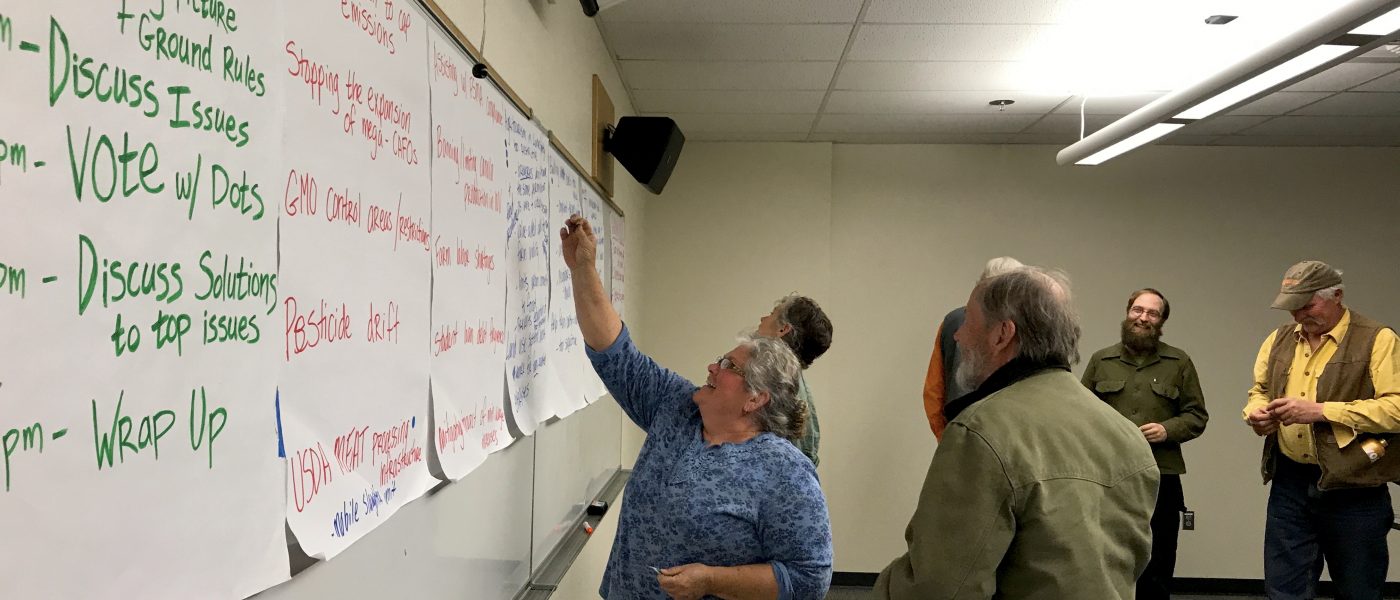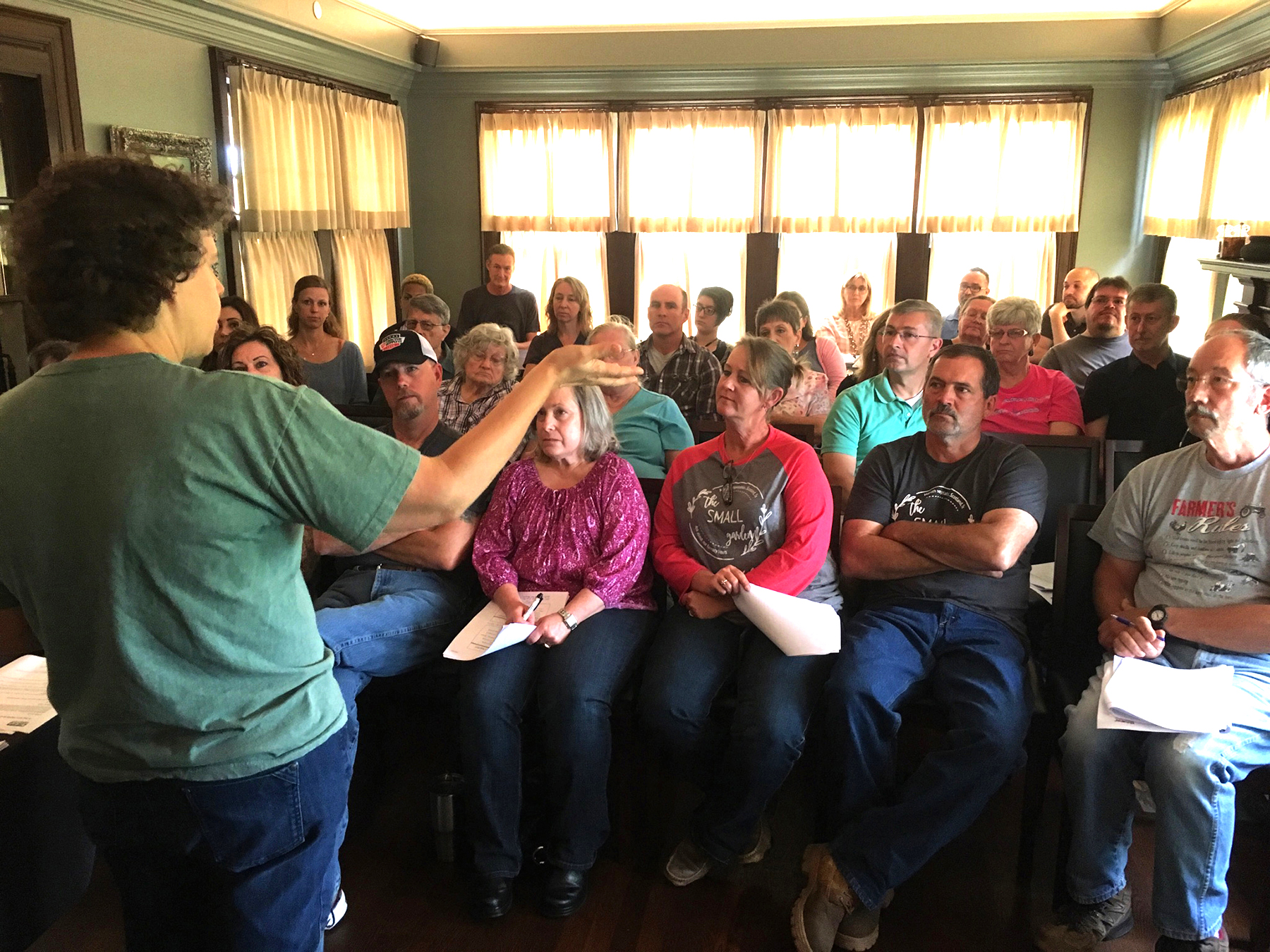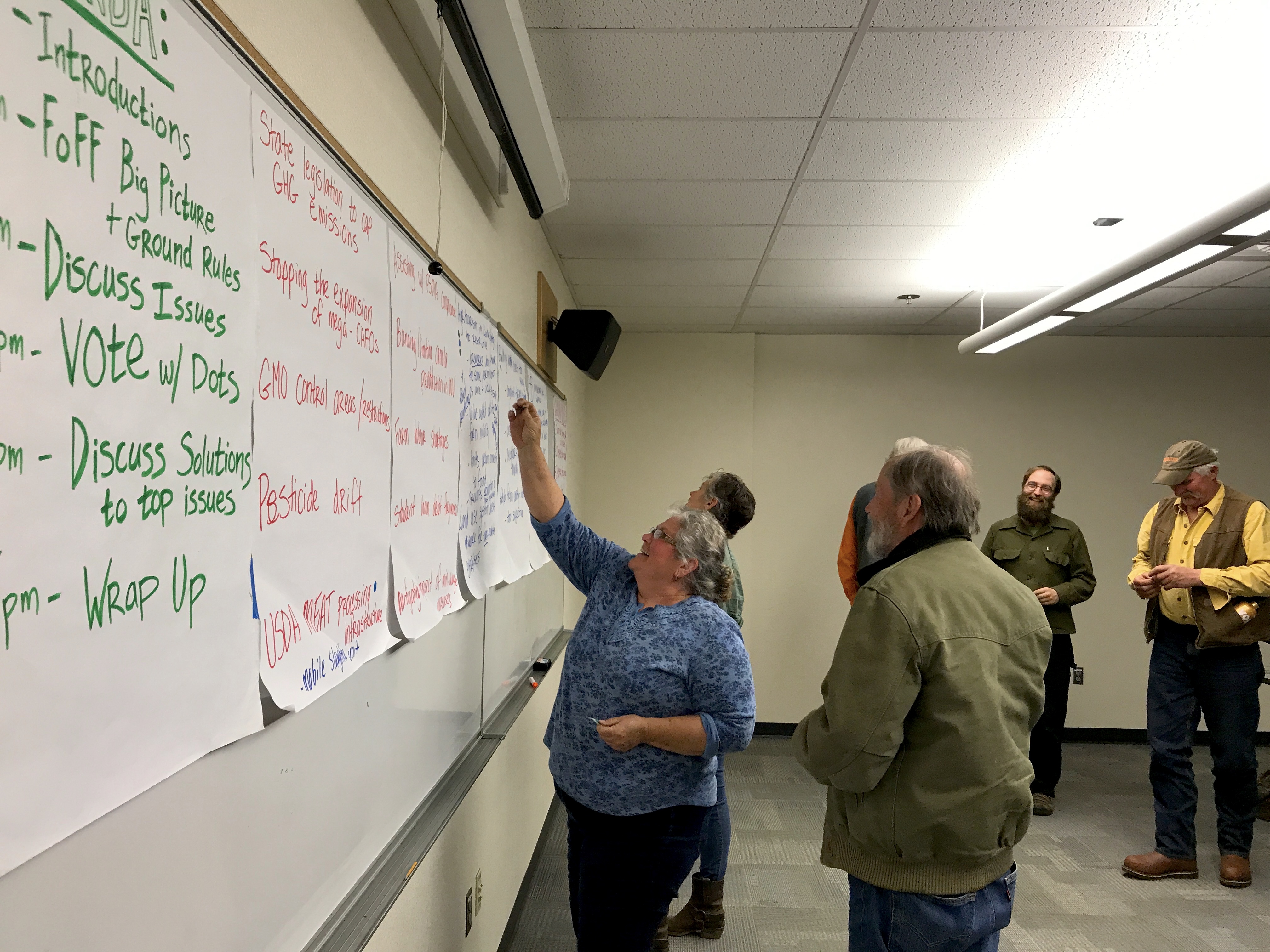Farm Aid partners with organizations all over the country to work towards our mission of creating a family farm-centered system of agriculture in America. Since our first concert in 1985, we’ve granted over $24 million to more than 300 organizations, creating a strong network of allies to keep family farmers on the land. Each year, grantees report back on what they’ve accomplished.
This post features stories from two of our grantees, Friends of Family Farmers and the Farm and Ranch Freedom Alliance. These two organizations have undertaken journeys around their states to hear directly from the farmers that they serve.
We’ve condensed and edited each statement for clarity, but the following are our grantees’ own stories in their words. We hope you’ll be as inspired as we were by the uplifting work that’s happening all over our country.
Farm and Ranch Freedom Alliance
The Farm and Ranch Freedom Alliance (FARFA) is an organization that supports independent family farmers in Texas and protects a healthy and productive food supply for American consumers. They advocate for independent farmers, ranchers, livestock owners, and homesteaders, as well as the consumers who support family farmers.
We planned trips to 16 towns across the state of Texas to hold listening sessions with small-scale farmers and local food producers and to provide grassroots advocacy training. The training intends to empower people to address issues locally and to more effectively engage them in FARFA’s campaigns at the state and federal levels.
During the course of our journey across Texas, we met over 230 people: small farmers, farmers’ market managers and others working in local-food-related businesses. We held events at farms, food banks, restaurants, schools, and churches. The program was timed to increase our reach during the discussions on the 2018 Farm Bill and to lay the groundwork for the 2019 Texas Legislative Session.
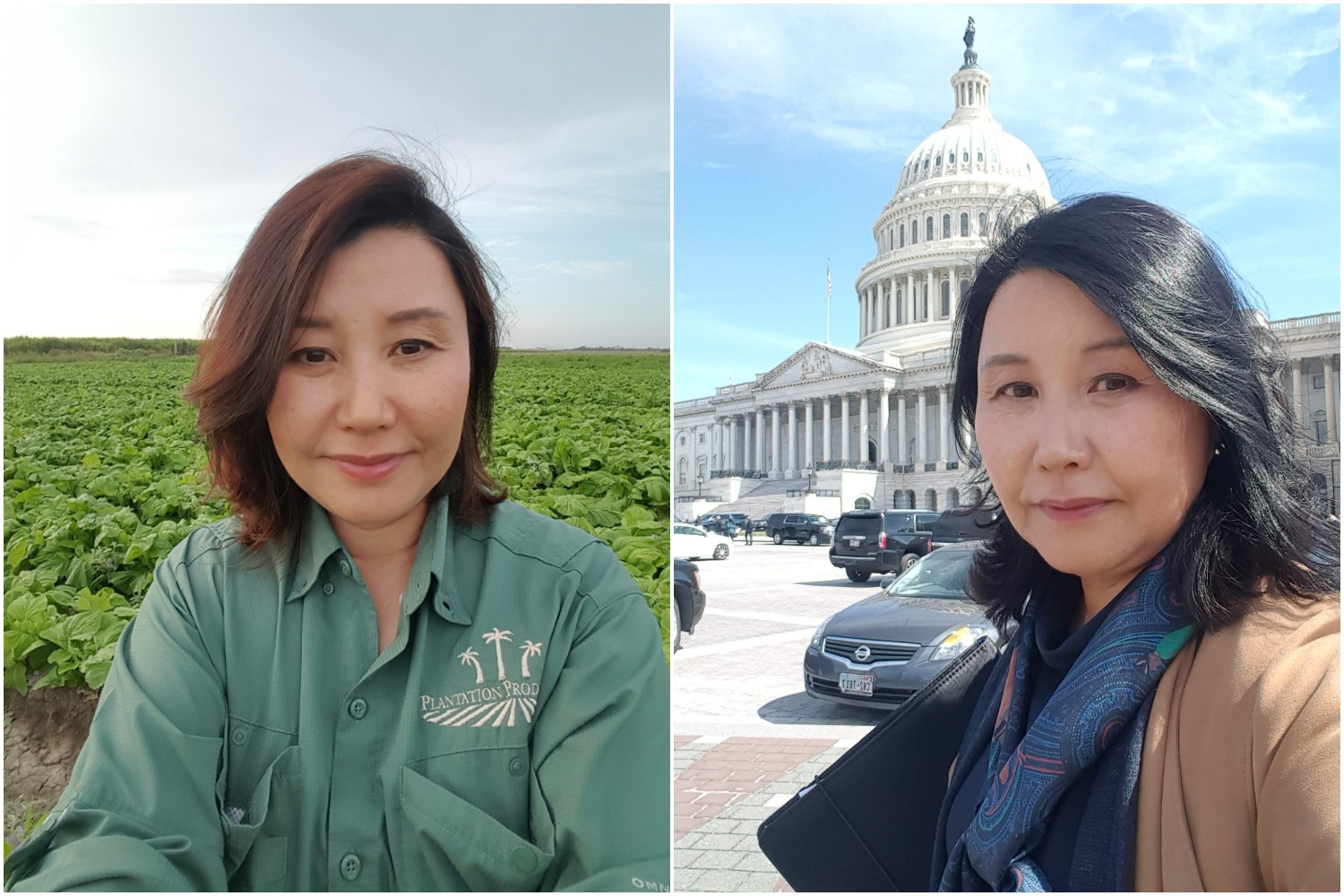
Lois Kim feels comfortable in the fields as well as talking to her senators at the capitol. Photo: Lois Kim
One of the regions we were most interested in visiting was the Rio Grande Valley, which is represented by Congressman Vela. The day after our visit to his district, one of the participants emailed us to tell us she had attended a town meeting hosted by Rep. Vela that very morning.
“Using the strategies you taught us yesterday, I was able to present my issue, get in touch with his local staff, and may have developed an ally from the local media,” she wrote. “In any case, I already sent off an email to the local staff who then will put me in touch with the congressman’s agriculture specialist in Washington. I even remembered to keep it to one page!”
In her “one-pager,” – which is what FARFA’s Judith McGeary always encourages when summarizing an issue for a representative – Lois Kim explained that she is a partner in a produce farm in Hidalgo County that is converting its 1,000 acres from conventional to organic. She briefly detailed the farm’s challenges: the lack of an insurance “safety net” for their crops of onions and greens; competition from low-priced Mexican imports; and the government’s willingness to subsidize sugar and other unhealthy crops but lack of subsidies for vegetable farmers.
“Thanks to Farm and Ranch Freedom, I don’t feel uncomfortable picking up the phone to call elected officials for things that affect me and I care about.”
Lois says she received several email responses from Rep. Vela’s office and the Congressman’s agriculture specialist. Although unsure whether any action was taken as a result, she says she came away from the experience feeling that the staff listened and valued what she had to say. “After this initial interaction with the Congressman’s staff, I felt empowered to contact the House of Representatives in recent months, calling them about specific bills that catch my attention in [FARFA’s] emails.”
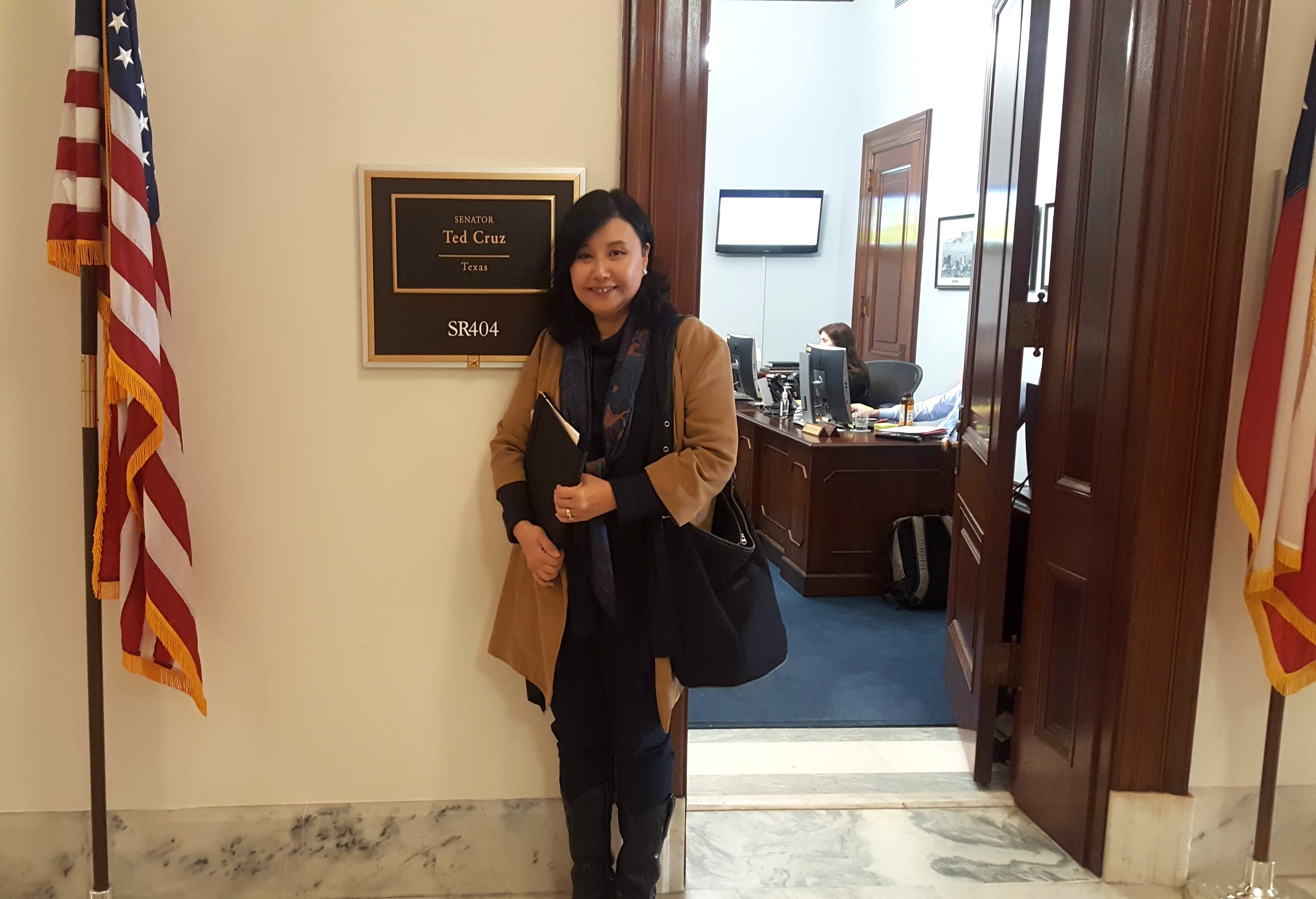
Lois Kim was invited by the National Sustainable Agriculture Coalition to speak to her politicians about past USDA grants she had received. Photo: Lois Kim.
Visit FARFA’s website for more information on their programs.
Friends of Family Farmers
Friends of Family Farmers (FoFF) works to promote and protect socially responsible agriculture in Oregon by engaging their members in the democratic process.
We hosted 19 listening sessions throughout Oregon in 2018. Our two organizers collectively traveled well over 1,000 miles and held gatherings in southern Oregon, on the coast in Astoria, in the lush Willamette Valley, the high desert of Central Oregon, the Columbia River Gorge and in the remote northeast corner of the state. We were grateful to expand our relationship with two Latino organizations and held two sessions entirely en Español. We heard from over 200 family farmers and ranchers who raise vegetables, fruit, animal products and just about every crop that can be grown in Oregon.
We have held these “Listening Tours” every other year since 2009 to hear from Oregon’s socially responsible producers who come to share their concerns, meet other like-minded producers, and help steer our organization. It was the first time for some; others had attended previously. Some came to express their frustrations; others came to be heard and offer helpful alternatives. Besides informing our work for the next two years, these meetings had the delightful, unprompted effect of building community among like-minded people–hard working, independent farmers who don’t often leave their farms.
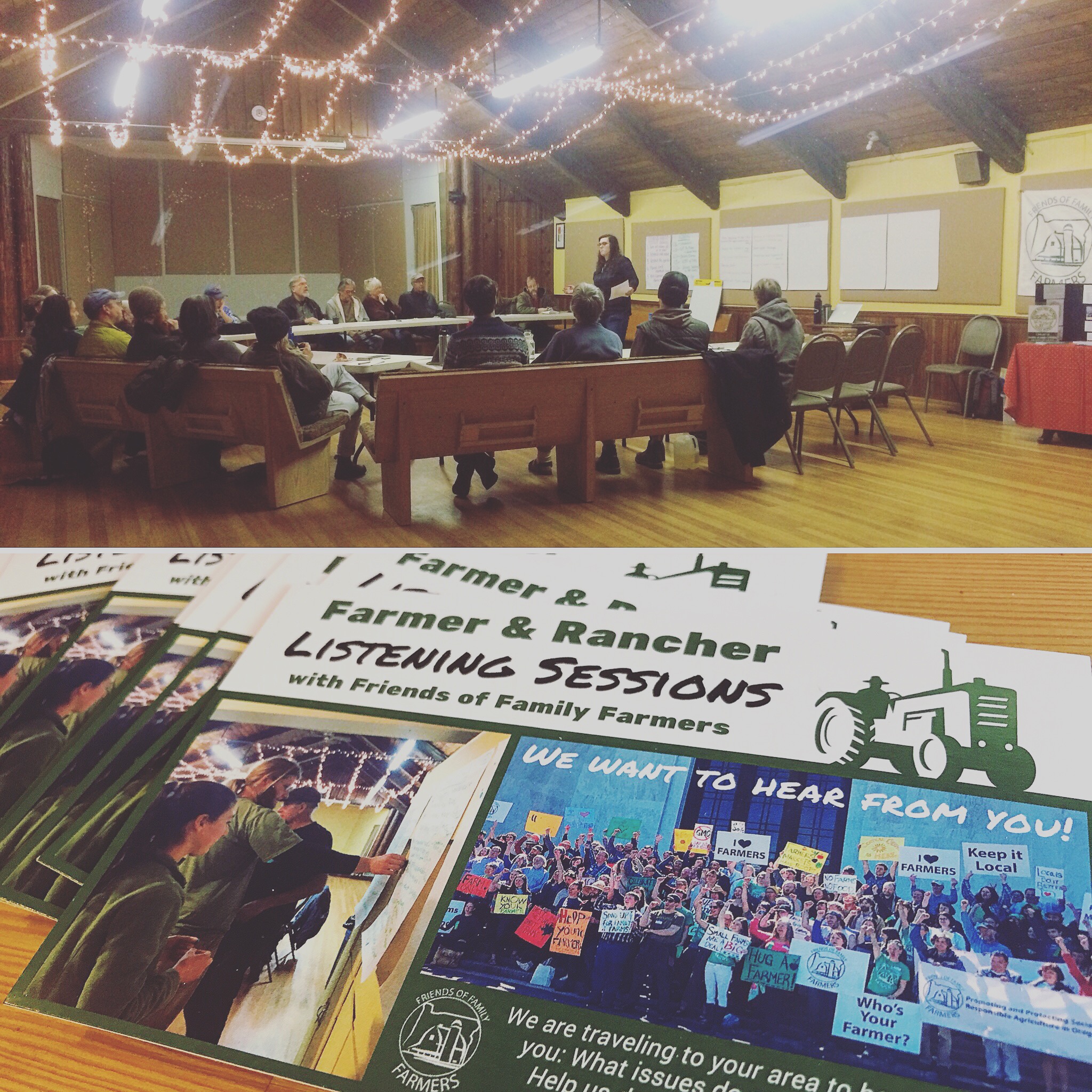
Lindsay facilitating a lively listening session at Mary’s River Grange, OR and a postcard invitation
At one gathering held at a local Grange Hall, a participant talked about the problems he’s faced trying to start a small chicken operation. When the session was winding down, he looked around the room and said, “I want to thank you all.” He then directed his comments at FoFF staff: “I think this is the first time I’ve ever used a Grange Hall for what I imagine it was intended for and this feels really good.” This producer had attended Listening Sessions in the past as well as brought his students to our Farmer and Rancher Day at the Capitol. Weeks after the Listening Session, he followed up with us via email:
“I just wanted thank you for all the work Friends of Family Farmers does on behalf of small farmers and ranchers. As you know, I not only farm, but I also work with youth and try to inspire them to think about our food system and become actively involved. I check your webpage often and use information from it as talking points for class time. I look forward to Farmer Day at the Capitol and the next Listening Sessions. It is amazing to see the kids get excited by these events.
Before school was out last week I had a couple students ask what we would study next year. I responded with, ‘It depends some on what priorities came from the Listening Session this year.’ Keep up the good work.”
It is this kind of feedback that inspires us to continue and even double down on our work.
